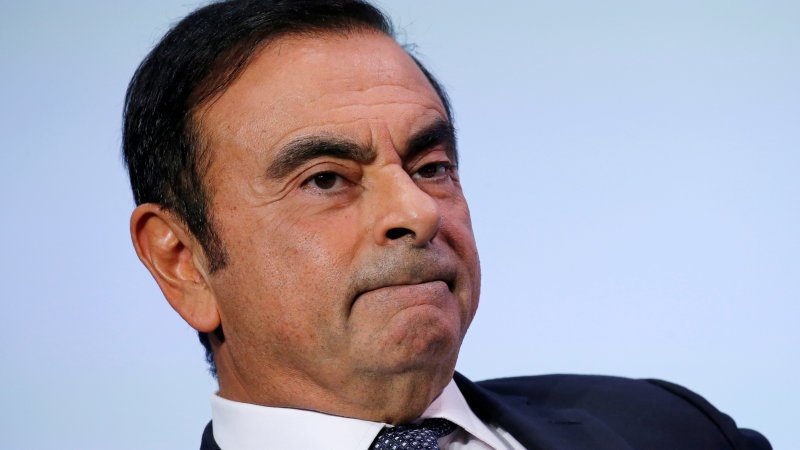Carlos Ghosn's arrest casts doubt on future of Renault-Nissan alliance

For years, France's Renault and Japan's Nissan struggled to make money in the global auto business.
Then came Carlos Ghosn, a Renault executive who helped to orchestrate an unprecedented transcontinental alliance, combining parts of both companies to share engineering and technology costs.
Now Ghosn's arrest in Japan for alleged financial improprieties at Nissan could put the nearly 20-year-old alliance in jeopardy.
Ghosn, 64, born in Brazil, schooled in France and of Lebanese heritage, is set to be ousted this week from his spot as Nissan chairman. He could also lose his roles as CEO and chairman of Renault, threatening the alliance formed in 1999 that's now selling more than 10 million automobiles a year.
He's been "the glue that holds Renault and Nissan together," Bernstein analyst Max Warburton wrote in a note to investors. "It is hard not to conclude that there may be a gulf opening up between Renault and Nissan."
In fact, Nissan's investigation into alleged misconduct by Ghosn is expanding to include Renault-Nissan finances, sources told Reuters — in a further sign that Nissan may seek to loosen its French parent's hold on their global carmaking alliance.
Nissan told Renault's board on Monday it had evidence of potential wrongdoing at Renault-Nissan BV, the Dutch venture overseeing alliance operations under Renault's ultimate control, three people with knowledge of the matter said.
Renault's board planned to meet Tuesday to discuss Ghosn's fate. "Carlos Ghosn is no longer in a position where he is capable of leading Renault," French Finance Minister Bruno Le Maire told France Info radio, calling on Renault's board to meet "in the coming hours" to set up an interim management structure. The French government owns 15 percent in Renault and has a say in its operations.
Nissan's board is to meet Thursday to consider Ghosn's fate.
Nissan has said it will dismiss Ghosn after he was arrested for allegedly abusing company funds and misreporting his income. That opens up a leadership void at the entire alliance, for which Ghosn officially still serves as CEO and chairman.
Ghosn added Mitsubishi to the alliance two years ago after the tiny automaker was caught in a gas-mileage cheating scandal. Renault owns 43.4 percent of Nissan, which owns 15 percent of Renault, with no voting rights in a partnership that began in 1999. Since 2016, Nissan has held a 34 percent controlling stake in Mitsubishi Motor Corp. Ghosn has floated the idea of a full merger between the three companies.
"Today's events throw any prospect of that up in the air," Michael Hewson, chief market analyst at CMC Markets in London, wrote in a note to investors.
Nissan CEO Hiroto Saikawa has publicly resisted the idea of an outright merger. So with Ghosn out at Nissan and probably Renault as well, the companies are unlikely to get any closer.
The companies now share technology, and they save money by jointly purchasing components.
While there could be some scrutiny of the relationships between the companies, they're so intertwined now that cutting them apart would be difficult, said Kelley Blue Book analyst Michelle Krebs. "I would not predict its demise," Krebs said of the alliance.
She said she sees further consolidation in an industry that faces unprecedented research costs for autonomous and electric vehicles, while at the same time continuing to develop cars and trucks powered by internal combustion engines.
"The last thing one of the world's biggest automakers needs is the disruption caused by an investigation into the behavior of a man who has towered over the global auto sector," said Hewson.
The brash Ghosn was once viewed as a savior in the auto business with the ability to turn around the two struggling companies. In 2006 he even proposed an alliance with global giant General Motors.
Bernstein's Warburton wrote that Ghosn's once-mighty reputation has been declining for years, while Krebs said Nissan never could meet Ghosn's goal of 10 percent U.S. market share even though it has relied on "bad behavior" such as heavy discounts and sales to rental car companies.
Saikawa reiterated Nissan's commitment to the venture, while a Renault statement expressed "dedication to the defense of Renault's interest in the alliance."
